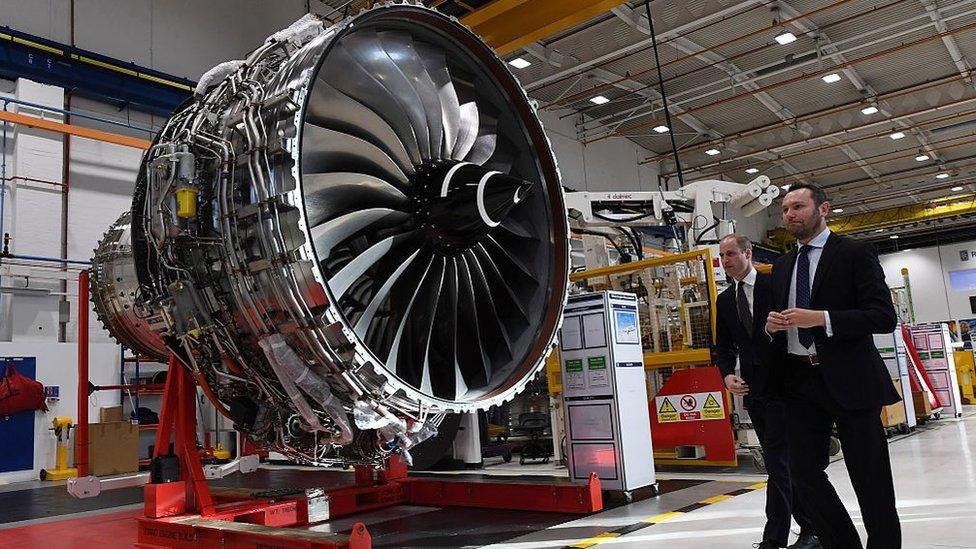What are auditors for?
- Published
- comments

It was perhaps inevitable that after Rolls Royce was hit with the biggest fine in the history of the Serious Fraud Office, attention would turn to who else knew about the murky goings on at the engine maker.
Earlier this year Rolls-Royce paid a total of £671m in fines (including £498 million to the SFO) and apologised after it was found to have paid millions in bribes over decades to middlemen to secure orders.
The Financial Reporting Council has said it is starting an investigation into the role of its long time auditor, KPMG who had been poring over Rolls Royce's accounts for 26 years. Given they were charged with giving the company's accounts a clean bill of health - how come they didn't spot something was wrong?
KPMG said it was co-operating and was "confident in the quality" of its work but surely, a detailed and professional audit should have turned up this widespread, recurrent and illegal activity? If it didn't what the hell are auditors for anyway?
Scandals like the one at Rolls-Royce (or Enron, Worldcom, Tesco and any number of hotspots during the financial crisis) serve to illustrate the structural problems at the heart of auditing and financial oversight.
The first is that auditors are not the police or regulators. They don't arrive and cart off whichever documents they like. By and large, they have to work with the information the company CHOOSES to give them. It is pretty easy for a company determined to pull the wool over the eyes of the auditor to do just that. This is the defence usually trotted out by audit firms.
The second is that auditors are contractors who are paid by the companies they examine.
'Time to get cosy'
The big four (PWC, KPMG, EY, Deloitte) between them audit over 90% of all big company accounts. They compete with each other for this lucrative business and it's in their interests to curry favour with the people who employ and pay them. KPMG have audited Rolls Royce for 26 years over which time they have been paid tens of millions of pounds and will inevitably develop a close relationship. Likewise, PwC audited Tesco for 32 years before agreeing not to re tender for the business in the wake of the accounting scandal.
Not an ideal backdrop for taking a tough, arms-length view of a company's activities. While conscious corruption is rare, it would be unsurprising if unconscious bias in favour of the company paying you didn't creep in over decades of lucrative association.
Recent new rules mean that big public companies (FTSE 350) now have to put their auditing contract up for tender every ten years but are only forced to change every twenty. That's still plenty of time to get cosy.
Auditors do get fined from time to time. The record fine in the US is $8m and the UK record is £3m pounds. These are tiny sums compared to both the fines levied on companies that misbehave and the huge size of the big accounting firms.
The major accountancy firms have historically made big rewards for relatively little risk.